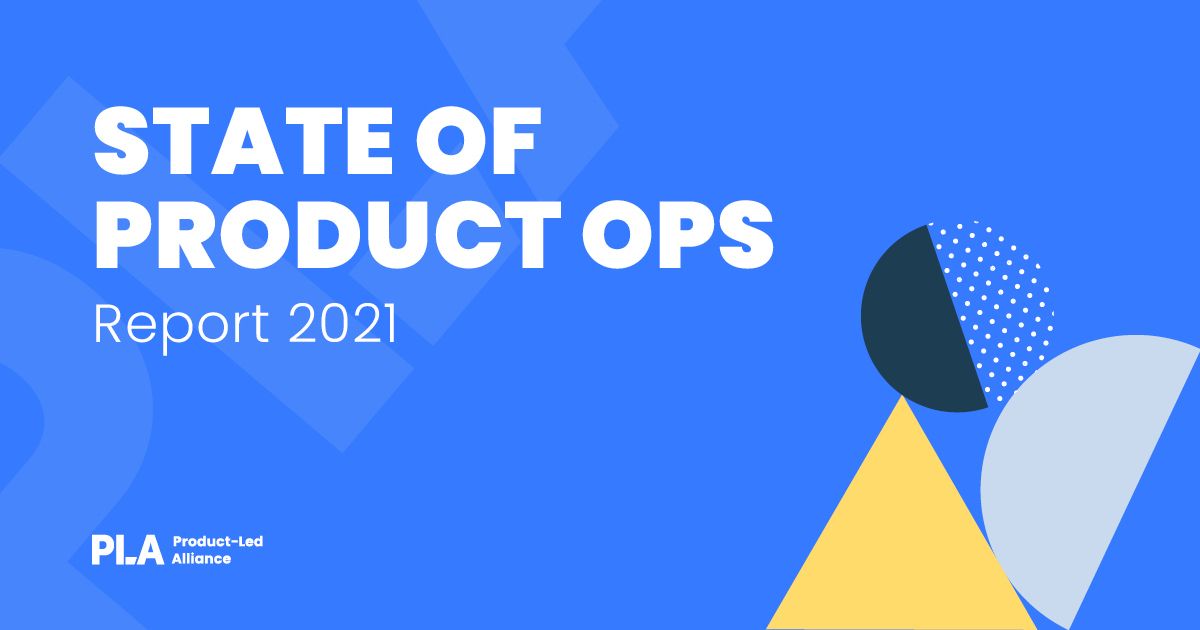How do you successfully transition from product management to product ops?
Kevin Sakamoto, Director of Digital Product Ops at Dollar Shave Club, has the answers.
Gerisha Nadaraju, host of the Product Ops Podcast, got to sit down and chat with Kevin, who explained his transition from PM to product ops, the similarities and differences between the roles, and top tips for those thinking of making the leap.
We’ve got some of the key highlights from the session right here, but if you want to listen to the full interview, just click below. 👇
Q: How did you end up in product ops?
A: At the time, at Dollar Shave Club, product ops was folded into the role of the VP of product. He was tasked to do a little bit of everything and it got to a point where he realized he needs to carve this out. He did do a little bit of research, and he realized it was a thing, thankfully and he got the approval to carve it out.
When I was speaking with him and interviewing with him at the time, what was really exciting were two things. One, that it was new, and you yourself as a product operative, we like new things, right? We like to tackle these new challenges and so I was immediately attracted to that.
Secondly, it afforded a broader view of product. I've been doing it, as you mentioned, for more than 10 years now and I love product management but I also like to learn, I'm constantly consuming new bits of information.
And looking at this particular role, where it had that broad view where I could work with other individuals across the company was terribly exciting.
Q: What were you doing before you got into product ops?
A: I've been extremely fortunate to have served various product and leadership roles with some recognizable brands early in the product journey. When I joined Zappos, which is an Amazon subsidiary, I was an early hire, if I recall correctly I was probably product manager number four there. I honestly can't remember, but I know it was pretty early.
The role at the time was just product manager, so it was purview over the entire site. It was pretty broad. At that point, I realized that I need to hire people stronger and smarter than me in very specific roles, which is thankfully what I did. So product grew at the same time that I was there too.
When I left Zappos to join Target it was sort of what you would expect from large corporate corporations, when they're getting into product, they take a lot of their hot business analysts and they turn them into product managers. So I was one of the early external hires to Target.
Even though that was more of an individual contributor role, it was really eye-opening because I got to work at a huge corporation, and it's a beloved brand here in the States.
From that point, I was really learning how to navigate what product management looks like in a corporate setting. After that, I was asked to join Lululemon, which is a global brand. It was interesting there because, again, product and the digital side were brand new, they were just sort of doing eCommerce without having this formal structure.
So having served as the director there also meant, sort of like in my role today, getting into JIRA tickets, and also working in strategic meetings. So it spanned multiple levels within the org.

Q: What skills from being a product manager do you still use in product operations?
A: I would definitely say there are three hard skills that I use. One is being very analytical. The fact that analytics, product ops notwithstanding, being able to support not only product managers, but the business overall in terms of here's what the site is doing, here are some basic web analytics, and being able to double click a little deeper into that. So just having analytical thinking and familiarisation with analytics platforms.
The second is communication. Within product management, we're very used to communicating between engineering, designers, QA, and maybe a few external stakeholders. How you deliver some topics and agendas differs, and it's sort of the same here, where you have to work with legal, supply chain, customer service marketing etc. So being able to modify that message matters.
The third is negotiation, being able to negotiate your objectives and what you want across different stakeholders. And that's true for product and product cops. I think the two other things I would say, one is this macroeconomic view, being able to understand what's going on in the economy around you to understand how that influences business strategy.
The last thing I would say is just this insatiable curiosity, you always have to be learning, you always have to be understanding what's going on in the world around you, and outside of your industry as a way to not only spark curiosity but just influence that macroeconomic view.
Q: Do you think product ops is a gateway to product management? Or vice versa?
A: I would say product management is the best job ever. When I would be running interviews from very talented UX agents or analysts or whatnot, engineers, whatever, I was "Product is the best", right? It's never the same. It's always fun.
You get to do amazing things. Now I'm actually gonna say, product ops is the best. I think that product management is a gateway into product tops. I say that mostly because I think about two areas and I've only been doing this for a year, you're obviously a lot more experienced than I am so I would love to hear your thoughts on this too.
I think understanding the struggles and aspirations that product managers have to go through is important. In order for us to be advocates for product, we need to understand what they could go through on a day to day, on a week to week, on a quarter to quarter basis.
The second area, I think is understanding what fuels and what drives engineering and product. It's never just "Hey, go build this". It's always about, it should be about, "Hey, we have this problem, try and find a way to solve this" and giving them that freedom to explore new ways that you never even thought about.
That's where engineering and product love to really go after things, you can see their passion. And it's being able to represent that passion, to express that passion, in a way that leadership can understand. Because if leadership says, "Hey, we need to do XYZ thing for Q3, and we want you to build 123 features out of XYZ" that's not gonna work for engineering and product.
So being able to guide the conversation to say, what if we did it this way? Here are the clear problems to solve, going back to that analytics and macro thinking, here are the numbers I'm seeing, here's what's going on in the economy, here's the direction I think we should take.
Again, being that advocate, it's a long way of saying I think product management is a gateway into product ops.
Q: In terms of product ops and product management, what are the key differences?
A: I would say, scale, I think. Because you're sort of doing the same things. When you're looking at a problem to solve, when you're finding creative ways to do it, when you're negotiating with the stakeholders to find an equitable solution, at the core that exists in product ops but in a different scale.
With product managers, we're very used to saying - okay, I need to solve this particular problem, I need to grow email addresses, I need to increase the step conversion or add to cart rates etc. We have the tools and assets available to us to make that happen.
For product operations, I think it's the same approach, I need to optimize our roadmap planning process, I need to create a number of consumable and digestible goals within Google Analytics and dashboards so that it can be used by engineering to product to the Chief Financial Officer.
So it's really then how do we go about doing that? I need to interview our customers, which could be the CFO, it could be engineering. I need to test out different dashboards, I need to test out different approaches, I need to find communication styles, I need to pivot my approach if something's not working.
I think the approaches are the same and as I mentioned earlier, some of the skills are the same. It's just we're working on broader problems than just a single thing for a month.
Download the State of Prod Ops. Definitions, expert views, the future of the function. This report's full of all the insights and info you need.👇

Q: Do you currently interact with PMs quite a lot? And how do you tend to work with them?
A: Product ops sits within the product organization so right now, myself and the Director of Product Management both report to the VP of product. My interactions are mostly with her, the Director of Product Management, but I do ping the individual product managers when there's a very specific question at that time.
We have our team meetings and we're rather small, so we have our group stand-ups just to see what we're doing. But most of the time, I just work directly with the Director of Product.
Q: What are some of the key challenges you're currently facing in product ops?
A: I would say prioritization is one, because this is a catch-all role, it could be something completely out of the blue that they ask you to go and solve. So it's being able to prioritize that with everything else that you have going on.
The second thing I would say is, I'm a team of one.
Q: Have you found any tools or resources that have been most helpful in navigating product operations?
A: I would say a good cup of tea and some chocolate, for sure to navigate my daily role. But aside from that, Confluence, for sure. Because we have to communicate to so many stakeholders, having confidence there, and then even just knowing how to organize it, it's not enough just to have Confluence, but to organize it in such a way that everybody can consume that.
And I'll be honest, one of the challenges I have is finding out that not everybody has Confluence in our organization. What do you mean, you don't have access?
Then we're a Google shop so we use Google Docs and everything. I've found being able to collaborate there, add notes, and ping others have been very, very productive.
Q: What advice do you have for anyone currently in product management, thinking about moving into a product ops role?
A: First off, hang on for a wild ride. Check your seatbelt and your neck restraint. But I think one of the biggest struggles I've had, and me being very analytical, is being able to measure your level of success and your contribution.
As a product manager, you can have your OKRs, you have very clear things that you want to do and you could say, okay, I achieved 85% of my OKRs for the quarter. I realized here like after three quarters, the OKRs I start off with I don't even look at because a month in they're completely different.
I think you just have to let that part of you go as a product manager, and just trust that you are adding value, you just won't see it in Google Analytics or whatever dashboard you're using.




 Follow us on LinkedIn
Follow us on LinkedIn




